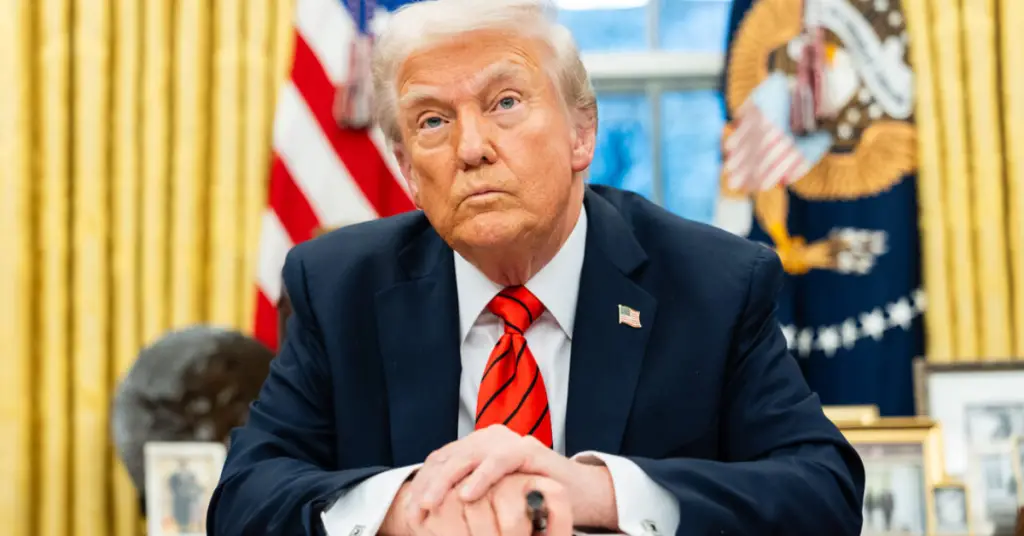Federal judges have recently blocked significant parts of President Donald Trump’s executive orders targeting several prominent law firms. These firms, including Jenner & Block and WilmerHale, were involved in investigations against Trump, and the president’s executive actions aimed to punish them by restricting their operations.
However, the rulings have stopped certain harsh penalties, such as limiting the firms’ access to buildings and terminating their contracts. The courts have allowed some measures to stand, particularly the suspension of security clearances for lawyers working at these firms.
The court rulings have been a significant setback for Trump’s attempts to pressure law firms associated with investigations into his actions. District Judge John Bates, overseeing the case related to Jenner & Block, ruled that Trump’s executive order could not be enforced. The order had targeted the firm’s pro bono legal work, attempting to penalize the firm for providing free legal services. Judge Bates found that this order was not valid and struck it down, which was a win for Jenner & Block.
Similarly, Judge Richard Leon ruled against the order targeting WilmerHale, a law firm with ties to Robert Mueller, the special counsel in the investigation into Russian interference in the 2016 U.S. election. The courts’ actions stopped the president’s efforts to impose penalties on these firms, even though some measures, like suspending lawyers’ security clearances, could still be enforced.
Along with other law firms, Jenner & Block and WilmerHale have been involved in legal disputes with the Trump administration due to their involvement in investigations that scrutinized the president’s actions.
Another law firm, Perkins Coie, joined Jenner & Block and WilmerHale in filing lawsuits against the Trump administration, and they have secured early victories in federal court. These legal battles represent a significant challenge to the Trump administration’s efforts to retaliate against those involved in investigations into the president’s conduct.
Trump’s aggressive actions against law firms involved in legal investigations have drawn criticism from various corners, including legal professionals and scholars. The president’s attempts to restrict the operations of these firms are seen as an effort to pressure and intimidate legal representatives who are working on cases involving him.
The president has targeted several high-profile law firms, such as Skadden, Arps, Slate, Meagher & Flom, and Paul Weiss, with demands that they commit to pro bono work in exchange for avoiding further penalties. These actions were seen as an attempt to suppress law firms’ independence and ability to represent clients without fear of retaliation.
One of the most significant cases was with the law firm Skadden, Arps, Slate, Meagher & Flom, which had to settle for $100 million to resolve a conflict with the Trump administration. This settlement came after the firm faced pressure due to its ties to individuals involved in the investigation into Russian interference in the 2016 election.

The settlement was seen as a way for the firm to avoid further legal troubles, but it also raised questions about law firms’ independence and whether they were being coerced into making settlements to prevent retaliation.
Trump commented on the settlement with Skadden, saying, “This was essentially a settlement. We appreciate Skadden’s coming to the table, as you know other law firms have likewise settled the case. It’s a shame what’s gone on.”
His remarks about the settlements reflect his view that these agreements were necessary for the law firms involved to avoid further conflicts with his administration. However, the settlements have sparked concerns about the erosion of legal independence. Critics argue that such settlements could set a dangerous precedent, where law firms feel pressured to settle cases to avoid further retaliation.
The issue of legal independence has become a central concern in these legal battles. Nearly 400 alumni of Skadden signed a letter urging the firm’s leadership to protect the freedom of its legal work. The signatories of the letter argued that law firms should not be coerced into making settlements or engaging in pro bono work as a way to avoid retribution from the government. The concern is that such pressure could undermine the ability of law firms to represent their clients objectively and fairly, which is a cornerstone of the legal profession.
In the current legal landscape, law firms face the challenge of navigating the ongoing pressure from the Trump administration while maintaining their professional independence. The legal community is closely watching how these cases will unfold, as they could have broader implications for how law firms interact with the government in the future. If law firms are forced to settle cases to avoid retaliation, it could set a troubling precedent that would limit their ability to serve their clients without fear of government intervention.
Ty Cobb, Trump’s former White House lawyer, expressed concern about the implications of these settlements. He warned that if more law firms “cave” to pressure from the Trump administration, it could lead to more widespread coercion in the legal field.
“The more of them that cave, the more extortion that that invites. You’ll see other universities and other law firms and other enemies of Trump assaulted and attacked into submission because of that,” Cobb said. His remarks highlight the potential for further legal and political conflicts if these issues are not addressed.
As these legal challenges continue to unfold, it remains to be seen whether Trump will continue his efforts to retaliate against law firms that are involved in investigations into his conduct. The court rulings so far have been a significant setback for the president, but the larger battle over legal independence and government pressure on law firms is far from over.
The outcome of these cases will likely have lasting implications for the legal profession, particularly in how law firms interact with government authorities and handle politically sensitive cases.
For now, the battle between the Trump administration and these law firms continues in the courts, with both sides preparing for what could be a long and contentious legal struggle. The legal community, along with the public, will be watching closely to see how these cases are resolved and whether they set any significant legal precedents for the future.
Disclaimer: This article has been meticulously fact-checked by our team to ensure accuracy and uphold transparency. We strive to deliver trustworthy and dependable content to our readers.




